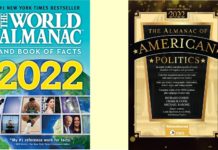|
I often complain that historians tend to see and examine only two aspects of our evolution: the political and the military. Or at least give them disproportionate attention.
The realities of life, and therefore of history, as at least as engaged with technology and inventions, shopping, travel and transportation, religion, school, clubs and associations, sports and entertainment, and the thousands of other aspects of daily life. Each of these has a history of its own.
One of the relatively few historians who understood that all of this matters was Daniel Boorstin, who served as a professor at the University of Chicago, historian at the Smithsonian, and as the Librarian of Congress.
I highly recommend all of his many books, but the one I suggest you start with is The Americans: The Democratic Experience (Vintage, 1974), the third part of a trilogy about American history. Not only was Boorstin an excellent and engaging writer, but he actually included the stories of such important inventions as the department store and the mail order catalog.
Here I quote from a review on amazon.com, which sums up some of my own thoughts:
Aside from the fact that Daniel Boorstin writes with real grace, which makes this final volume in his trilogy about American life a pleasure to read, it is filled with a consideration of subjects that you most likely never thought about as being part of "American history"–at least as it’s taught in school–yet these are the events and the people who made the world we actually LIVE in: the businessmen and idea people who created the mail-order catalogue, the department store, the oil industry, and even the divorce industry, which played a surprising commercial role in the American west. Boorstin tells about people whose names have become household words (like Sears & Roebuck, or Dunn & Bradstreet) and how their ideas helped build the country and the life we know today; he tells about the cattle drives and the range wars; about inventions, and business, and how the democratization of shopping in the big department stores was a quintessentially American development. Every chapter has its fascination for the reader–at least for THIS reader. Ideas or practices that I simply accepted as "the way things are" prove often to be unique American inventions, and knowing this helps us know more about who we are, and why we are seen as different from the rest of the world (even as they start to copy us in so many ways).
If you want to understand American history in its fullest breadth, read Boorstin!
|
|










